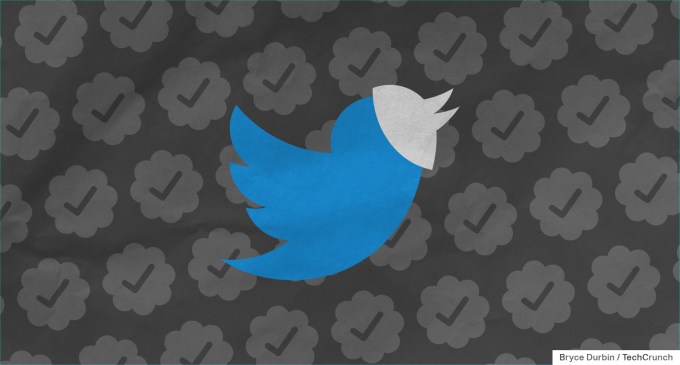Startups Weekly - What the midterm madness means for startups
|
||||
|
||||
|
||||
|
||||
|
||||
|
||||
|
||||
|
||||
|
|
||||
|
||||
|
||||
|
Older messages
FTX CEO Sam Bankman-Fried quits as crypto exchange files for bankruptcy
Friday, November 11, 2022
TechCrunch Newsletter TechCrunch logo The Daily Crunch logo By Christine Hall and Haje Jan Kamps Friday, November 11, 2022 Hoooo boy. As Alex would say: This week has been a long year. You just know it
50% off TC Sessions: Space tickets for Veterans Day
Friday, November 11, 2022
Keep your finger on the pulse of the space industry TC Sessions: Space Header A 50% off salute to Veterans Day How'd you like to save 50% on a trip to space? We mean TC Sessions: Space on 12/6 in
Help for H-1B tech workers who've been laid off (or think they might be)
Friday, November 11, 2022
TechCrunch+ Newsletter TechCrunch+ logo TechCrunch+ Roundup logo By Walter Thompson Friday, November 11, 2022 Welcome to TechCrunch+ Friday Image Credits: Bryce Durbin/TechCrunch According to layoffs.
Sequoia Capital writes off its $210M investment in crypto exchange FTX
Thursday, November 10, 2022
TechCrunch Newsletter TechCrunch logo The Daily Crunch logo By Christine Hall and Haje Jan Kamps Thursday, November 10, 2022 Tech reporting is a lot of things, but it sure ain't boring, as the
CZ is in the house — grab a pass for $100 off and go
Thursday, November 10, 2022
TC Sessions: Crypto - Miami - November 17 TC Sessions: Crypto - Nov 17 - Miami CZ shares his web3 takes at TC Sessions: Crypto CZ shares his web3 takes at TC Sessions: Crypto Talk about a crazy year
You Might Also Like
Daily Coding Problem: Problem #1709 [Medium]
Wednesday, March 5, 2025
Daily Coding Problem Good morning! Here's your coding interview problem for today. This problem was asked by Facebook. Given an array of integers, write a function to determine whether the array
How Swiss Tables make Go 1.24 faster
Wednesday, March 5, 2025
Plus a way to call external library functions without Cgo. | #544 — March 5, 2025 Unsub | Web Version Together with pgAnalyze Go Weekly Faster Go Maps with Swiss Tables — One of Go's newest
Mapped | European Fertility Rates by Country 👶
Wednesday, March 5, 2025
The population replacement threshold is a fertility rate of 2.1. In 2025, all of Europe, except one small nation, is well below that level. View Online | Subscribe | Download Our App Invest in your
Trust in JS supply chain; sync vs. async code; JIT vulnerabilities; parseInt() and keycap emojis; V8
Wednesday, March 5, 2025
We have 10 links for you - the latest on JavaScript and tools Secure your JavaScript dependencies. socket.dev Sponsor Open source code makes up 90% of most codebases. Socket detects what traditional
The importance of flow state for developers
Wednesday, March 5, 2025
You are receiving this email because you subscribed to microservices.io. Considering migrating a monolith to microservices? Struggling with the microservice architecture? I can help: architecture
This beefy phone is a projector too 📽️
Wednesday, March 5, 2025
Biggest tech opps; How Firefox changed; Drone flying tips -- ZDNET ZDNET Tech Today - US March 5, 2025 GOTRAX 4 electric scooter A smartphone that's also a projector? I tested it, and it's
⚙️ Self-driving Ubers
Wednesday, March 5, 2025
Plus: A trade war, and AI
Post from Syncfusion Blogs on 03/05/2025
Wednesday, March 5, 2025
New blogs from Syncfusion ® S&P 500 Returns After Rate Cuts: Visualized Using a Flutter Heatmap By Kompelli Sravan Kumar Kompelli Lakshman Learn how to visualize the S&P 500 returns after
10 Best Practices for Cloud Visibility
Wednesday, March 5, 2025
Learn how to instantly improve cloud visibility — 10 proven strategies ͏ ͏ ͏ ͏ ͏ ͏ ͏ ͏ ͏ ͏ ͏ ͏ ͏ ͏ ͏ ͏ ͏ ͏ ͏ ͏ ͏ ͏ ͏ ͏ ͏ ͏ ͏ ͏ ͏ ͏ ͏ ͏ ͏
The Sequence Engineering #503: Stanford Researchers Just Created a New Agentic Framework for Tool Usage and Comple…
Wednesday, March 5, 2025
OctoTools addresses some of the core limitations of agentic solutions. ͏ ͏ ͏ ͏ ͏ ͏ ͏ ͏ ͏ ͏ ͏ ͏ ͏ ͏ ͏ ͏ ͏ ͏ ͏ ͏ ͏ ͏ ͏ ͏ ͏ ͏ ͏ ͏ ͏ ͏ ͏ ͏ ͏ ͏ ͏ ͏ ͏ ͏ ͏ ͏ ͏ ͏ ͏ ͏ ͏ ͏ ͏ ͏ ͏ ͏ ͏ ͏ ͏ ͏ ͏ ͏ ͏ ͏ ͏ ͏ ͏ ͏ ͏ ͏ ͏






